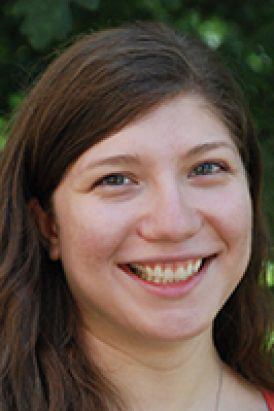Recruitment and retention of underrepresented minorities (e.g., Black, Indigenous, and People of Color (BIPOC)) has been a major problem in the Earth Sciences, with little progress over the last four decades (see Bernard and Cooperdock, 2018, Nature, for review). Action must be taken to improve diversity, equity, and inclusivity (DEI) the Earth Sciences. Throughout my academic career, I have made DEI-related service a priority.
OUTREACH AT THE COMMUNITY SCALE
I have been a member of the Society for the Advancement of Chicanos/Hispanics and Native Americans in Science (SACNAS) since 2011. I served on the executive board for the University of Michigan SACNAS Chapter—including serving as Chapter President for the 2018-2019 academic year— since 2017, which allowed me to have a direct impact providing a supportive community for BIPOC in STEM at the University of Michigan, developing professional development and outreach opportunities for University of Michigan students, and creating numerous activities for K-12 students across Southeastern Michigan. While these activities are helpful for advancing DEI initiatives within the university and local community, actions must also be taken at the department level to improve recruitment and retention of students in the Earth Sciences.
Several SACNAS@UMich Chapter members at the 2018 National SACNAS Conference in San Antonio, TX.
DEPARTMENTAL EFFORTS TOWARDS ADVANCING DEI
At the University of Michigan, I was a graduate student representative for the Astronomy and Earth and Environmental Sciences departments' annual "Fall Preview Weekend," which invited students from underrepresented groups to the departments learn about our graduate programs. In this role, I helped students to understand the graduate program requirements and expectations, and moderated conversations about life as a graduate student. At McGill University, I joined the Earth and Planetary Sciences Department Equity and Working Climate Committee, a collaborative effort to identify the needs of Earth department members and brainstorm and implement ways to improve both recruitment, retention, and overall working climate within the department. Now at Arizona State University, I serve as Co-President in the School of Earth and Space Exploration (SESE) Postdoc Council, and as co-chair for the Inclusive Community Community in SESE. In these roles, I am working to improve the working climate for all SESE community members by developing resources and enhancing community engagement at departmental events.
Myself and several post-grads and grad students who are working on a project to understand the role of photochemical iron oxidation in the development of BIFs.
MENTORSHIP
Mentorship is essential to student success and, subsequently, to the advancement of scientific research. I am committed to being a compassionate and effective mentor, supporting students as they develop skills that align with their personal and professional goals. My involvement in mentorship began as an undergraduate, and now, as a member of two lab groups, I mentor both undergraduate and graduate students. These experiences have taught me that mentorship is not a 'one-size-fits-all' process, but a personalized journey shaped by each student's unique needs.
